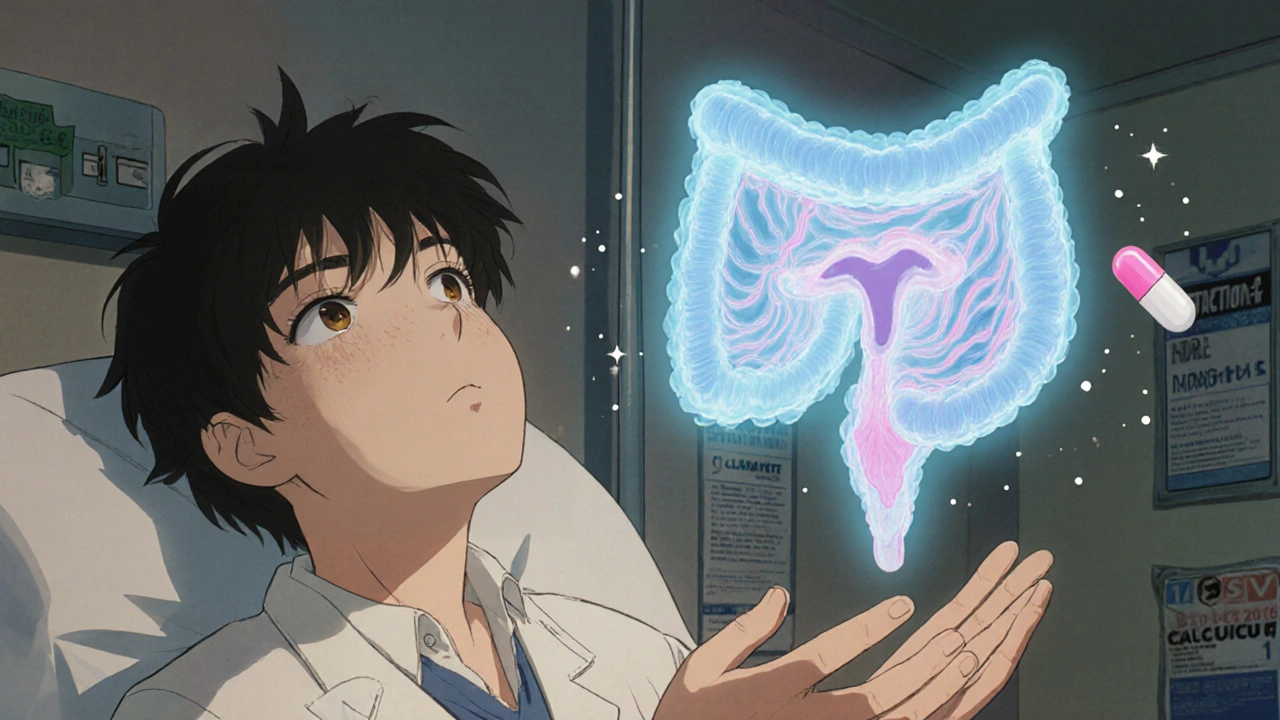When working with Urispas, a brand name for an alpha‑1 blocker that relaxes the smooth muscles of the urinary tract. Also known as Alfuzosin, it is commonly prescribed to ease urinary bladder spasms and improve flow. It belongs to the broader class of alpha‑1 blockers, drugs that target alpha‑1 adrenergic receptors to reduce muscle tone in the prostate and urinary tract. By softening the muscle contractions, Urispas makes it easier to empty the bladder, especially for people who experience frequent urgency or painful spasms. If you’ve ever felt a sudden, sharp pull in the lower abdomen after drinking a lot of water, you’ve probably dealt with urinary bladder spasms, involuntary contractions of the bladder wall that cause sharp pain and urgency. Those spasms often stem from overactive smooth muscle, inflammation, or nerve irritation, and they can be aggravated by dehydration or an over‑full bladder. In everyday life, simple habits like staying hydrated, timing bathroom trips, and avoiding caffeine can lower the chance of a spasm, but when the problem persists, a medication like Urispas can provide targeted relief.
Understanding the mechanism helps you pair the drug with non‑drug strategies. The active ingredient blocks alpha‑1 receptors, which stops the signal that tells the bladder’s smooth muscle to tighten. This action is similar to how pelvic floor muscles, the group of muscles that support the bladder and urethra can be trained to improve control. Exercises such as Kegels strengthen those muscles, allowing them to hold urine more effectively and reducing the frequency of spasms. Studies show that patients who combine alpha‑1 blockers with regular pelvic‑floor training report fewer nighttime trips and less urgency. Another lifestyle factor is fluid balance: while dehydration can concentrate urine and irritate the bladder lining, excessive fluid intake without scheduled voiding may overload the bladder, both scenarios triggering spasms. Managing water intake, reducing caffeine, and using a bathroom schedule can complement Urispas’s muscle‑relaxing effect. If you notice that a certain activity, like long drives or certain positions, consistently brings on a spasm, adjusting posture or taking short breaks to relax can also help.
Like any medication, Urispas comes with its own safety profile. Common side‑effects include mild dizziness, headache, and occasional nasal congestion – signs that the drug is affecting blood vessels as it relaxes smooth muscle. Rarely, patients may experience a drop in blood pressure when standing up quickly, which can cause light‑headedness or fainting. Because the drug works systemically, it can interact with other medicines that also lower blood pressure, such as certain antihypertensives or nitrates. Always tell your pharmacist about over‑the‑counter products, especially herbal supplements like ginseng or St. John’s wort, which may change how Urispas is processed in the liver. If you have a history of severe liver disease, kidney problems, or a known allergy to alfuzosin, discuss alternatives with your doctor before starting treatment.
Beyond medication, several alternative approaches can further reduce urinary bladder spasms. Bladder training—gradually lengthening the time between bathroom visits—helps the bladder learn to store larger volumes without triggering a spasm. Weight management also matters; excess abdominal pressure from obesity often worsens urgency and leakage, so a balanced diet and regular activity can make a big difference. For some, a short course of anticholinergic drugs may be added to calm an overactive bladder, while others benefit from biofeedback therapy that teaches precise control of pelvic floor muscles. The articles below cover these topics in depth: you’ll find a side‑by‑side comparison of Urispas with other alpha‑1 blockers, dosage guidelines, tips for safe use, and realistic lifestyle tweaks to keep spasms at bay. Dive into the collection to get practical advice, scientific insights, and step‑by‑step guides that empower you to manage urinary health confidently.

A detailed comparison of Flavoxate (Urispas) with common bladder muscle relaxants, covering mechanisms, side effects, costs, and ideal patient profiles.